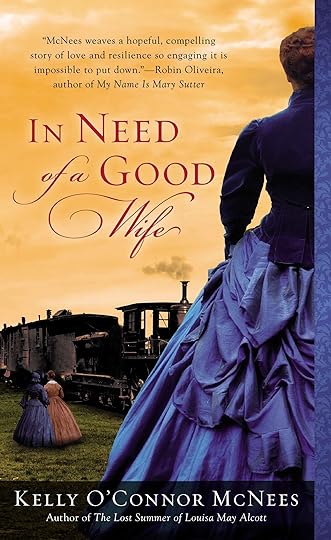Erika Robuck's Blog, page 20
November 18, 2012
Book Review: THE MERMAID COLLECTOR
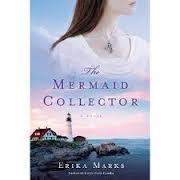
“What man didn’t wish for a guiding light on the horizon of his life, a flash to signal danger or safety? Living next to a lighthouse that had no beam seemed ironic to him.” Erika Marks, THE MERMAID COLLECTOR
Fellow NAL/Penguin author Erika Marks came to my attention when I read and loved her first novel, LITTLE GALE GUMBO. When I found out that her second novel took place in two time periods, I eagerly awaited its release. From the first page of THE MERMAID COLLECTOR I was hooked, and quickly read and enjoyed it.
Set in the town of Cradle Harbor, Maine, THE MERMAID COLLECTOR takes place during the Mermaid Festival–the annual ritual remembering the Mermaid Mutiny of 1888, when a group of the town’s men were reportedly lured to sea by the mermaid’s call.
Local outsider and sculptor Tess Patterson wins a contest with her mermaid woodcarving and finds unlikely love with a troubled man caring for his difficult brother. In 1888, a barren fisherman’s wife becomes entangled in a painful scandal that threatens her marriage and her sanity. As the mermaid festival approaches, the mysteries of the present and past are woven together until their final connection and climax.
The multi-period novel is a complex story structure that, when done well, makes an outstanding read. When the stories of the present and the past have equal weight, the characters are equally engaging, and the stories are connected by setting or circumstance, the plot and themes are richer for it.
Marks has perfectly blended her multi-period narratives, and has created a compelling and satisfying drama. I found myself quickly reading each section because I was so interested in developments in the next. I’m generally drawn to the past in such narratives, but Marks’ present day characters and story were as complete and interesting to me as those in the past.
Marks’ writing style is smooth and immediate, and her descriptions of the coast of Maine made me long to visit. The book moved me to tears from both tragedy and redemption, and I’ll be thinking about it long after I’ve closed its pages.
If you enjoy stories of love, family secrets, and that demonstrate the relationship of the present to history, you will love THE MERMAID COLLECTOR. I can’t wait to read Marks’ next book.
For more on Erika or her novels, her website is www.erikarobuck.wordpress.com .
November 8, 2012
Book Review: THE LIGHTHOUSE ROAD
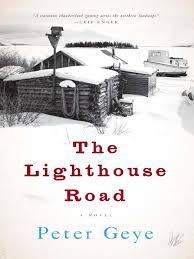
“The rhythm of that season was unlike anything he’d ever known. It was almost as if the long, steady work with his saws and adze continued in the dark with Rebekah, and since he took as much pleasure in one as the other, there were nights his felicity seemed endless. Boundless. And so he mistrusted it even as he gorged himself.” Peter Geye, THE LIGHTHOUSE ROAD
While attending various bookseller events this fall, I came across Peter Geye’s novel, THE LIGHTHOUSE ROAD, and heard serious praise for the book. I picked it up in the middle of deadlines and book promotion madness, was transported to a fishing shack by a frozen river with a glass-eyed rum runner, and I didn’t want to leave.
Set in the 1920s and the 1890s in Minnesota, THE LIGHTHOUSE ROAD is the multi-generational story of a town of immigrants, orphans, and outcasts trying to make good lives against tough odds in the unforgiving wilds of a young country.
Thea is alone, pregnant, and scared until she finds love in her newborn son Odd (pronounced ‘Ode.’) Rebekah sells a piece of her soul for a place in the world, but can’t resist the lure of personal happiness. Hosea’s pride and intelligence fool him into believing he can control those under his care. Odd is the heart of the novel and the town, and represents the best of humanity in difficult circumstances.
From the onset, THE LIGHTHOUSE ROAD ensnares the reader and won’t let go. With winter settings chilling enough to raise the hair on one’s arms, to portrayals of human love strong enough to warm the heart, THE LIGHTHOUSE ROAD is highly evocative and poignant. Scenes of childbirth, rum-running, wolf hunting, boat building, and doomed love give intensity to the plot, while the interior lives of the people of the town and the choices they make bring the characters to life.
I don’t make this comparison lightly, but echoes of Hemingway resound in the clean prose, themes of love and death, and in the portrayal of men, women, and relationships. If the better aspects of Hemingway’s TO HAVE AND HAVE NOT and the purity of the truest hero in literature as portrayed in THE OLD MAN AND THE SEA blended together, they could create THE LIGHTHOUSE ROAD.
For those who enjoy historical works of literary fiction, I give THE LIGHTHOUSE ROAD my highest recommendation. It is one of my favorite books of 2012, and I can’t wait to dig into Geye’s back list. When you read it, I’d love to hear what you think.


November 5, 2012
Author Q & A: Erika Marks
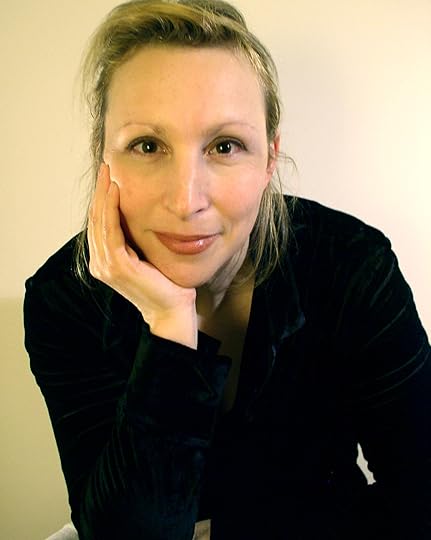
Today’s Author Q & A is with Erika Marks, a fellow NAL/Penguin author and friend. I loved her first novel, LITTLE GALE GUMBO, and though I have not yet had the opportunity to read her latest novel, THE MERMAID COLLECTOR, it is on my TBR list, and I hope to review it very soon. Until then, I wanted to hear some of the background of the book and learn a bit about her writing process. Erika was kind enough to answer my questions, and now I’m more excited than ever to dig into THE MERMAID COLLECTOR. Without further ado…
What inspired you to write your novel?
It all began with a picture of a mosaic of a sea captain and the mermaid he supposedly left his wife for—I saw it in an architectural magazine and was immediately consumed with the idea of it and using the magical quality of such a legend as a backdrop for a story and the foundation of a small town’s identity. Around the same time, I’d read an article about a pair of brothers who’d started a small shop in New York City making their own chocolate (this shows how much a storyline can change from inception through drafts!) and I had this idea about two men arriving to a small town under mysterious circumstances. (In the early drafts Tom and Dean came to open a bakery!)
What is your favorite part of the writing process?
The edits! I know—am I nuts or what?  Seriously, I love getting notes back on a draft and digging in because I know once I begin revisions on that first draft, then the story can really come alive. I certainly try to write the tightest first draft possible, but my process tends to be such that my novels don’t flesh out until I begin edits in earnest. And I find that so incredibly exciting.
Seriously, I love getting notes back on a draft and digging in because I know once I begin revisions on that first draft, then the story can really come alive. I certainly try to write the tightest first draft possible, but my process tends to be such that my novels don’t flesh out until I begin edits in earnest. And I find that so incredibly exciting.
What part of the process is not your favorite?
I would have to say the self-promotion part. We all know that in this day and age, authors have to be marketers and publicists for their work, and I struggle terribly with that because I never want to be pushy or self-serving. I know a lot of us as writers are challenged by this—all of us, most likely. But there’s no question that attending readings and festivals is one part of the promotional process that I LOVE and am so grateful for; the chance to connect with readers and hear firsthand what they like and don’t like in their stories is a gift to a writer, so that for me is unquestionably the silver lining in the marketing piece.
If you could go back in time, what would you have told your first novel self before publication?
Oh, what a great question! Since I’d been trying for twenty years to get published by the time I got my first book contract, there are MANY things I’d probably have said along the way. At the top of the list would be to not think that the book contract was the finish line; it’s not. In fact, the contract is merely the start of a whole new journey—a thrilling, wondrous, nail-biting journey. So keep that skin tough and those goals strong!
What is your favorite novel of all time?
Ack! Can anyone answer this? Erika, my dear, can YOU? (I’ll be watching the comments to find out.) I don’t know that I can—only because there are so many novels that have moved me at different points in my life and for very different reasons—I can’t pick just one. I do know, however, that there are certain writers whose work inspires me and leaves me breathless wondering how they do what they do—among them are Alice Hoffman, Annie Proulx, Stephen King, John Irving. But since we are nearing the holiday season, I will say that one of my very favorites—and one that I re-read every year at this time without fail—is Capote’s short story A Christmas Memory. I bawl every time. And every year, I cry at a different point in the story. I am, however, in awe of the entire work no matter what.
What is your first memory of writing?
I LOVED comic books as a kid (and still do!) so from a very early age I was making my own—doing the illustrations and the text—so I would say my earliest memory was of writing was building the storyline for a comic book at ten or eleven. Part Star Wars, part Justice League, part Josie and the Pussycats. It likely had some serious plot holes.
What do you most want readers to take away from your novel?
Much of THE MERMAID COLLECTOR takes place over a short period of time, just a few days before the town’s annual Mermaid Festival; I wanted to explore the idea of how life can offer exceptional opportunities to connect with another person in a fleeting—but deeply meaningful—way. My hope would be that my story leaves the reader appreciating the promise of magic and possibility in everyday life—and that the capacity for love can bind us to one another in the most remarkable of ways.
Thank you, Erika. That was as insightful and endearing as ever. And for the record, my favorite novel of all time is POSSESSION by A. S. Byatt. 
* * * *
Erika Marks is a native New Englander who was raised in Maine and has worked as an illustrator, cake decorator, and carpenter. She lives in Charlotte, North Carolina, with her husband and their two daughters. This is her second novel after LITTLE GALE GUMBO.
Website: www.erikamarksauthor.com
Facebook: https://www.facebook.com/pages/Erika-Marks-Author/128773427179948
Twitter: https://twitter.com/erikamarksauthr


October 26, 2012
Book Review: THE LOST WIFE
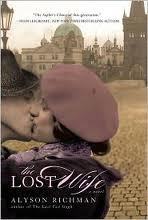
“As if in a trance, she pushed up her sleeve. There on her forearm, next to a small brown birthmark, were six tattooed numbers.
‘Do you remember me now?” he asked, trembling.
She looked at him again, as if giving weight and bone to a ghost.
‘Lenka, it’s me,’ he said. ‘Josef. Your husband.’”
Alyson Richman, THE LOST WIFE
THE LOST WIFE by Alyson Richman was published in 2011 and is 334 pages. I had the book on my TBR list for some time, but when I met Alyson at NAIBA in Washington DC and was able to speak to her about the novel, I became so engrossed in what she had to say, that I moved it to the top of my reading pile.
THE LOST WIFE begins at a wedding when the groom’s grandfather spots the bride’s grandmother, and he realizes that she is the woman he married in Prague at the start of the second World War, and who he believed had died. As she begins to recognize him, the novel moves to the past and tragic story of the young Jewish lovers during WWII.
In pre-war Prague, Lenka is the daughter of a well-to-do glass blower and a Bohemian mother. She is raised in privilege and her talent for art is well nourished at Prague’s Academy of Art. As she comes to spend more time with her best friend’s family, she begins to fall in love with her friend’s older brother, Josef. Unfortunately, as their relationship grows, the shadow of the Nazis begins to overtake the city.
Before long, their entire world is turned upside down, and Lenka and Josef marry in haste, and with the blessing of their families. After one beautiful night together, their families and their lives begin to unravel, while terrible circumstances force them apart. Told from both Lenka and Josef’s perspectives, THE LOST WIFE details the horrors of war, the impossible choices the victims of the holocaust faced, and the triumph and redemption of the human spirit.
THE LOST WIFE is masterfully written. Richman reveals her story with precision, perfect pacing, and captivating prose. Not only are her characters and plot rich and memorable, but the writing itself is well-crafted and evocative. The historical detail and renderings of setting are as vivid as the paintings Lenka creates, and I was moved to hear that even in the hell of the Nazi work camps, there were those who tried to create things of beauty on paper, with music, and in their own relationships. Richman holds nothing back in her narrative, and I cried many times, but all of the pain is worth the message, and these are stories that need to be known.
If you love beautifully written, evocative historical novels, I strongly encourage you to read THE LOST WIFE. I can’t wait to read more from Alyson Richman, and I give this novel my highest recommendation.
Alyson was generous enough to donate a signed copy of THE LOST WIFE for a giveaway. To be entered into the drawing, please leave your favorite WWII book or film below in the comments. I will select a winner on Thursday, November 1st. (US residents only, please.)


October 25, 2012
Deep South Magazine Travel App
Whenever I travel, I search the surrounding areas for local must see landmarks, and as a person obsessed with writers and the past, I tend to gravitate toward literary landmarks. While on my book tour, I visited Walden pond and Author’s Ridge at the Sleepy Hollow Cemetery in Concord, MA, F. Scott Fitzgerald’s house in St. Paul, MN, the Poe Museum in Richmond, VA, and Edna St. Vincent Millay’s estate, Steepletop, in New York. There were plenty of other places I would have ventured if time had allowed.
I have been a long time fan of Deep South Magazine, and Erin Z. Bass of Deep South has created an app that identifies literary landmarks in the southern states. From Hemingway’s House in Key West to Zora Neale Hurston’s Dust Tracks Heritage Trail, these literary places can be found through a search index or a map with little pop up pictures. I think this is brilliant.
Here’s more about the app: http://deepsouthmag.com/2012/01/deepsouth-lit-app/ , and I am giving away one free coupon code for those who answer this question in the comments:
What is your favorite literary landmark?
Happy travels, and good luck!


October 21, 2012
Indie Bookstore Spotlight: Flyleaf Books

Indie Bookstore Spotlight: Flyleaf Books
Title: Flyleaf Books
Setting: 752 Martin Luther King Jr. Blvd, Chapel Hill, NC, 27514
Characters (on Twitter): [ Jamie Fiocco] @FlyleafBook
Backstory: Flyleaf Books opened in November 2009. Owners Jamie Fiocco, Land Arnold and Sarah Carr had all worked in bookstores or publishing for years, and when a landlord in Chapel Hill, NC approached Jamie about opening an independent bookstore in his shopping center she in turn approached Land and Sarah about the project. All three had grown up or lived in Chapel Hill for many years, so they knew there was not only a great reading but a writing community that was not being served by an indie bookstore. In their first three years they have hosted about 350 author events a year.
Hook: Flyleaf is a general independent bookstore, we sell mostly new but some used books and have a really big children’s section. We are really lucky to have a dedicated author events space – hardwood floors, audio/visual equipment and 140 chairs. We can make the space intimate for a small event or open up the entire room for a large event. The space Flyleaf occupies used to be a womens’ gym and the events room is the old aerobics room; it seemed a shame to demolish that great space within a space!
Website: http://www.flyleafbooks.com/


October 18, 2012
Indie Bookstore Spotlight: Annapolis Bookstore

Title: Annapolis Bookstore
Setting: 35 Maryland Avenue, Annapolis, MD 21401
Characters (on Twitter): @BookstoreMadams
Backstory: Once upon a time, eight years and three locations ago, a fifteen year old told her mother that she couldn’t bring home another book unless she got rid of some. The next day, the mother saw a single room for rent and started a used bookstore. After a couple of years, they outgrew their space and had to move. Several years after that, they grew and moved again to their current location on Maryland Avenue, and now sell used and rare books, new adult titles, oodles of children’s books, and specialize in maritime and philosophy for the convenience of the nearby students at the Naval Academy and St. John’s College.
Hook: Events of music, poetry, readings, game nights, and tag team theater make the Annapolis Bookstore a small community center. There is also a café with tasty sandwiches and coffee, a secret garden with a playhouse, and a rumored ghost in the basement.
Website: http://www.annapolisbookstore.com/


October 13, 2012
Book Review: Blackberry Winter
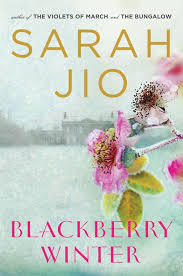
BLACKBERRY WINTER is Sarah Jio’s third novel, and I bought the audiobook for a long car trip. From the moment the book began, I was captivated by the mult- period drama of two very different women dealing with great losses.
The novel begins in depression era Seattle in 1933 as single mother Vera Ray tucks in her son for bedtime and prepares to work the overnight shift at a local hotel. She hates leaving him in the apartment alone at night, but it’s what she must do to support the two of them. The chill she feels from the unseasonably late snow storm foreshadows the devastation she is about to experience. When Vera returns from her shift that night, her worst fear is realized: Daniel is missing without a trace.
Alternating with the chapters set in the past, are those in present day Seattle. Coverage of another strange May snowstorm (a “Blackberry Winter”) is assigned to Seattle Herald reporter Claire Aldridge. As she digs in the archives to find an angle for the story, she unearths the tragedy of the missing boy, Daniel, and becomes consumed trying to find out what ever happened to him. Her research leads her to face unresolved pain in her own life and marriage, and her connection to the past is much more than she ever could have known.
I have been a long-time fan of Jio, and BLACKBERRY WINTER, did not disappoint. Jio seamlessly weaves the stories of the past and present together with compelling, likable characters, and a layered mystery. I’ve always enjoyed multi-period novels for the way they unite the past and the present, and keep the plot moving, and BLACKBERRY WINTER does this exceptionally well.
I have to confess that just as all of the mysteries in the book were wrapping up my iPod skipped and shut the audiobook down, and I was left with thirty minutes in my trip with no resolution to the book!! As soon as I got home, I emailed Amy Bromberg (who had encouraged me to read the novel), and she told me how everything turned out. I will get the book so I can actually read the ending, but I was relieved that someone had read it and could answer my queries. (I never could get the ending of the audiobook to load.)
It came as no surprise when Sarah Jio made the New York Times Bestseller list with the book last week, and I wish her all the best. She has a lifetime fan in me. If you love compelling period novels with elements of mystery and heart, I strongly recommend BLACKBERRY WINTER.


October 5, 2012
Author Interview: Kelly O’Connor McNees
Please welcome Kelly O’Connor McNees. Her novel, IN NEED OF A GOOD WIFE, was just released to many glowing reviews. Kelly was kind enough to answer some of my questions for her about the writing process, the book itself, and her first novel, THE LOST SUMMER OF LOUISA MAY ALCOTT. Kelly is charming and I can’t wait to read IN NEED OF A GOOD WIFE.
1. What inspired you to write IN NEED OF A GOOD WIFE?
Since I read Sarah Plain and Tall, probably when I was about nine years old or so, I think this story has been rattling around in my brain. Can you imagine anything more simultaneously thrilling and terrifying for a woman in the nineteenth century than the prospect of leaving behind the life she knows inNew York City to travel to the frontier by train for the prospect of love, or, at least, a kind of freedom? And there are so many ways in which it could go wrong! The town could be awful, the man a dud, the marriage dull. Or he could be a lunatic. I read a story in my research about a mail-order bride who, while traveling west, was robbed at gunpoint on the train. She made the rest of the journey, penniless and traumatized, only to arrive at the house of her future husband and recognize him as the robber!
Real-life women entered into these pacts for all sorts of reasons–in search of love or financial support, to escape overbearing parents or a spoiled reputation back home. And once they arrived, they found that nothing worked out the way they expected it to. Many returned home, but some stayed on. And I just had to know, by reading as much a I could about those women, and imagining some characters of my own, why they stayed, and what happened to them.
2. What is your favorite part of the writing process?
Well, there is something sweet (and fleeting!) about the beginning, when the majority of the book is still living inside your head intact, and you have yet to disappoint yourself by inadequately capturing it on the page. Second to that would be revision, when rough becomes smooth and you have the chance to make the book something special. Maybe. I always feel a real sense of urgency during that process. For one thing, I want to try as hard as I can to fix what’s wrong while the answers are fresh in my mind. For another, I do not want to get hit by a garbage truck while it is half finished and leave the impression that I couldn’t do any better. I mean, I would prefer not to get hit by a garbage truck at any time, but if it has to happen, lord let it be after I finish the book.
3. What part of the process is not your favorite?
The doubt, the fear, the anxiety about the garbage truck. Seriously, the hardest part is calming my mind enough to get good work done. It seems we are all losing the ability to concentrate. I worry about this.
4. If you could go back in time, what advice would you give your debut author self before the launch of THE LOST SUMMER OF LOUISA MAY ALCOTT?
Ha! I would probably tell her to slow down and enjoy it a little more, not to worry so much about what was going to come next. But I doubt she would listen.
5. W hat is your favorite novel of all time?
Oh, dear. That’s impossible to say, I think, because it changes all the time. But I can name some authors whose work has had an enormous impact on me as a human: John Irving, Alice Munro, Ethan Canin, Laurie Colwin, Marilynne Robinson, Willa Cather, Kent Haruf… the list goes on, you see!
6. What is your first memory of writing?
Ooh, what a good question. I don’t know if this is my first memory, since I wrote a lot as a young kid and even more as a teenager. I always kept a journal and took notes on everything and thought about stories. In seventh grade I took a very boring required science class and each day would put my head down on my desk as soon as the bell rang. I came home with a poor report card at the end of the marking period, which said that I slept in class. But I wasn’t sleeping! I wrote an entire novel in my head. Each day I would pick up where I had left off the day before.
Here’s another good writing memory: In high school I worked as a waitress. I was always scheduled to work the same shift as this other waitress named Helen. She was petty and lazy–never did her fair share–and she had these long fake fingernails of which she was very vain. I was too chicken to confront her, but I did go home one day after realizing that between her hooves and her little flat nose, she looked kind of like a pig, and I wrote a soaring epic poem about her in which she was transformed into a pig by a witch. It was not very nice. I never showed it to anyone. But every time I saw her after that I felt like I was part of this wonderful inside joke about her. I realized writing could be a way of dealing with the world, of digesting what was happening to you, of calling a spade a spade.
7. What do you most want readers to take away from IN NEED OF A GOOD WIFE?
I came to love the three women who are the focus of this novel, which is about a group of women traveling to a tiny Nebraska town to marry men they’ve never met. I wanted this to be a story about what kind of a person you’d have to be to survive such a thing. Not just survive, but endure, carve out a life for yourself. And if you weren’t that kind of person, what could you do to become her? So I hope IN NEED OF A GOOD WIFE is about resilience and also friendship, and how then, as now, women could forge their own path if they were brave enough to do it.
* * *
What a beautiful message. I can’t wait to read IN NEED OF A GOOD WIFE! For more on Kelly, visit her website at http://kellyoconnormcnees.com/. Also, find her at the links below:
Kelly O’Connor McNees Online Tour Schedule:
Oct. 2: http://stylesubstancesoul.com/category/interviews/
Oct. 3: http://www.greatthoughts.com/
Oct. 4: http://nomadreader.blogspot.com/
Oct. 5: http://www.erikarobuck.com/Blog.html
Oct. 8: http://www.2readornot2read.com/
Oct. 9: http://themaidenscourt.blogspot.com/
Oct. 10: http://literatehousewife.com/
Oct. 11: http://www.luxuryreading.com/
Oct. 12: http://readingthepast.blogspot.com/
Oct. 25: http://womensfictionwriters.wordpress.com/
Oct. 29: http://www.wondersandmarvels.com/


September 20, 2012
Review: Cascade
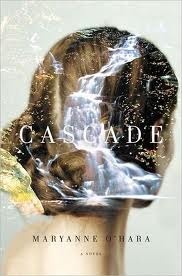
“[W]hen artistry seems most elusive is when you must focus, dig deep, and force yourself to think about how to give form to an idea that seems almost too vague to express.” Maryanne O’Hara, CASCADE
Cascade was published in August and is 368 pages. I learned about the novel on Twitter, and purchased it with the intent of reading it after my book tour. I opened it one evening on the road to preview the first chapter, and became completely immersed in the 1930s world of a painter trying to save her father’s theater (and herself) in a town about to be flooded to become a reservoir.
In the Boston suburb of Cascade in 1935, Desdemona Hart Spaulding has put off her art career in New York to care for her dying father, and in the process, has married a steady local man to rest her father’s concerns about her own well being, and to resurrect the theater in town, to which her father has devoted his life.
When her father dies, not only has she realized the terrible error of her marriage, but she learns that the town of Cascade is in the running to be destroyed so that it can become a reservoir for Boston. Desdemona does not wish to hurt her husband, but her deepest desire is to have freedom from the marriage to pursue a career in art, and a relationship with a Jewish painter with whom she has fallen in love. As the town faces increasing pressure and the knowledge that its demise is imminent, Dez becomes entangled in a web of her own desires and mistakes that take on catastrophic consequences.
With its doomed lovers and condemned town, CASCADE, reads like the kind of Shakespearean drama that would have been performed on the wooden planks of Dez’s father’s theater. O’Hara does an admirable job portraying a woman conflicted about her choices, but unwilling to compromise on her dreams. I found myself wanting to physically hold Dez back or warn her from walking into bad decisions, but that is what made the novel so compelling. I was also satisfied with the denouement, when Desdemona reaches full maturity and demonstrates her growth.
O’Hara skillfully weaves Desdemona’s creative process through the emotional tapestry of the novel, and her prose is exquisite. This book is a perfect balance of literary fiction with a compelling plot, and would make an excellent book club selection. I can envision a lively debate about Dez’s choices with some siding with her or standing firmly against her. Dez is a complex heroine and one of the most real I’ve read in recent memory, and I won’t soon forget her.
Unlike the town, the novel CASCADE will be timeless because of O’Hara’s storytelling. I highlighted passage after passage of the beautiful language, and I want to reread the novel to hunt for the Shakespearean references I know are there. If you are a fan of historical fiction that deals with complex relationships and thematic layers, I recommend that you read this book. I give CASCADE my highest endorsement.






